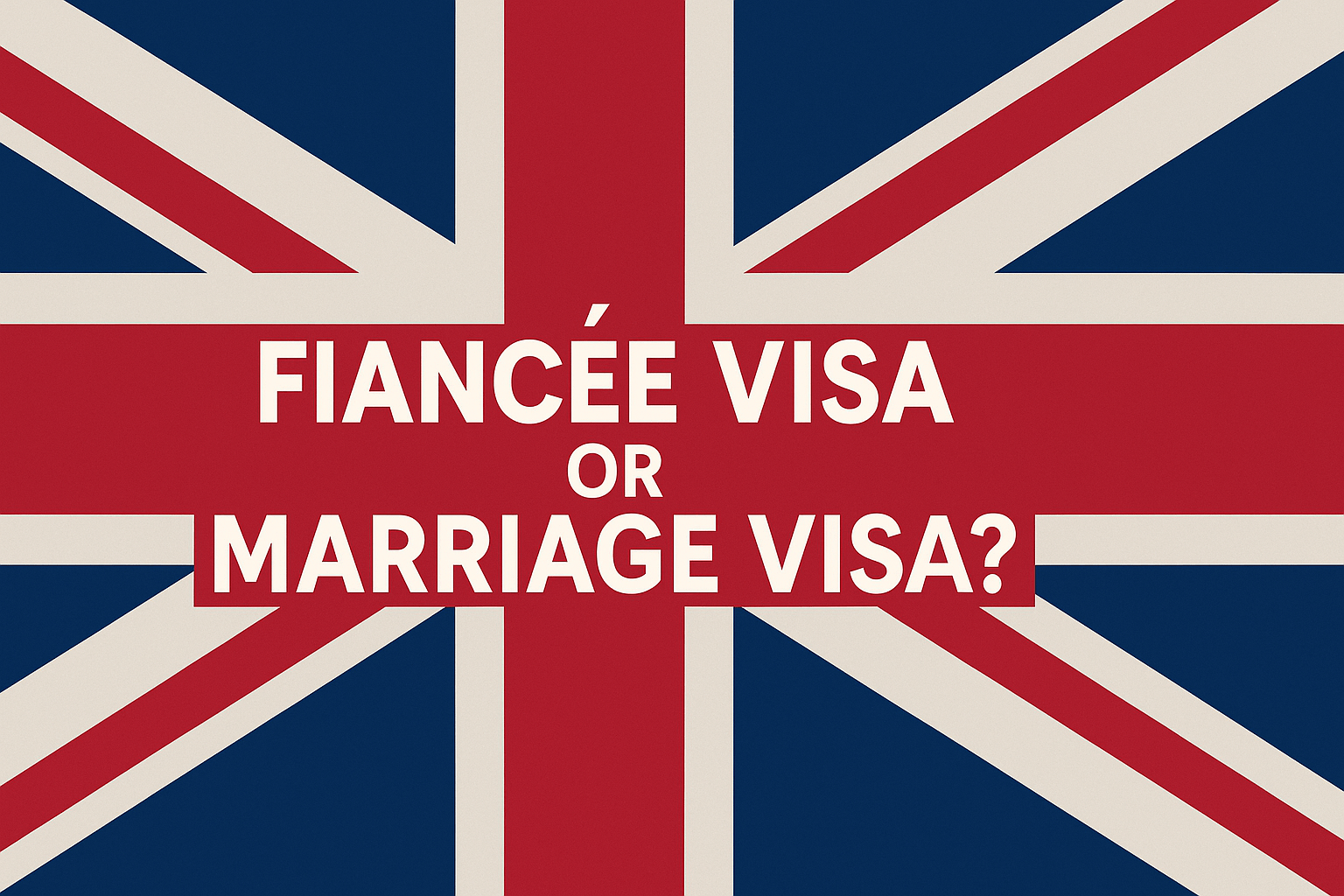Thinking of tying the knot in the UK? You’re not alone. Thousands of couples from around the world choose Britain as the place to begin their married life. But before you start planning the flowers or the guest list, there’s one big hurdle to clear: immigration rules. If your partner isn’t already in the UK, you’ll need a visa—either a fiancée visa or a marriage visa. And that brings us to the key question: which one fits your situation best?
The answer isn’t as straightforward as it seems. Each option comes with different rules, timelines, and costs. So let’s break it down without the jargon, starting with the basics.
What’s the Main Difference?
The fiancée visa is for people who plan to come to the UK, get married within six months, and then switch to a spouse visa afterward. Think of it as a two-step process.
On the other hand, the marriage visa (also called a spouse visa) is for people who are already married to a British citizen or someone with settled status. You apply for this after marriage, not before.
If you’re not married yet but want to tie the knot in the UK, the fiancée visa is the route for you. If you’re already married and want to live together in the UK, it’s the marriage visa.
The Fiancée Visa: Quick Facts
This visa gives you six months in the UK. During this time, you must get married. You can’t work, and you can’t extend it unless you apply for a spouse visa after the wedding.
To qualify, both partners must be over 18, intend to live together permanently, and have met in person. You also need to prove that you have a genuine relationship and meet the financial threshold—usually an income of at least £18,600 a year or savings.
It’s not just about love—it’s about paperwork.
The Marriage Visa: What to Know
If you’re already married, you can apply for the marriage visa to live in the UK. This visa lasts for 2 years and 9 months initially, and it allows you to work, study, and access the NHS.
The requirements are similar to the fiancée visa: a genuine relationship, proof of income or savings, English language skills, and suitable accommodation.
It’s more flexible because you’re already legally married, and you’re applying to live together as spouses—not just to get married.
Which One’s Faster?
Neither route is particularly fast, but the marriage visa often saves time and money in the long run. With the fiancée visa, you’re applying twice: first to get into the UK, and then to stay after the wedding. That means double the application fees and a longer timeline.
So, if you can legally marry outside the UK first, then apply for the marriage visa, it might make things simpler.
But let’s be honest—sometimes emotions win. Many couples want the romance of a UK wedding. If that’s your dream, and you’re ready to handle the extra steps, the fiancée visa could be worth it.
Hidden Costs and Delays
Here’s something people don’t always expect: both visa routes involve a good chunk of money. Besides the application fees, there are costs for document translations, priority services (if you’re in a hurry), the NHS surcharge, and sometimes legal help. It adds up quickly.
And delays happen. A single missing document can throw off your whole timeline. That’s why it’s smart to have your paperwork reviewed by an expert—even if you’re confident. It could save you weeks, or even months.
What If You Get It Wrong?
This is where things can get tricky. If your visa is refused, it’s not just a headache—it’s emotional and expensive. You might have to appeal, reapply, or even rethink your wedding plans. The UK immigration system is strict, and small mistakes can lead to big setbacks.
That’s why many couples choose to work with legal advisors from the start. Firms like Imperial & Legal specialise in these exact issues and can guide you through the maze.
Common Mistakes to Avoid
Here are a few classic errors that trip people up:
-
Thinking a tourist visa is enough to get married in the UK (it’s not).
-
Not meeting the financial requirements.
-
Missing key documents like divorce papers or language certificates.
-
Forgetting that the fiancée visa has a tight six-month window.
Being organized makes a huge difference. Think of it as planning a wedding—yes, the emotional stuff matters, but so does the logistics.
So, Which One’s Right for You?
If you’re already married and ready to settle down together in the UK, go with the marriage visa. It’s more direct, and you can start your life as a couple right away.
If you’re not married yet but want the UK to be your wedding destination, the fiancée visa is your path—but be prepared for a little more paperwork and a tighter timeline.
In both cases, the most important thing is to be prepared. Know the rules. Plan ahead. And don’t be afraid to ask for help.
Because when it comes to love and immigration, one thing’s for sure: the smoother the process, the happier the beginning.

Chase Ortiz is part of the team at PaigeSimple, where he takes care of all the advertising requests. With a sharp eye for detail, Chase makes sure every advertising opportunity is handled smoothly, helping the site grow and reach more people. His ability to manage these tasks efficiently makes him an important part of the team.

